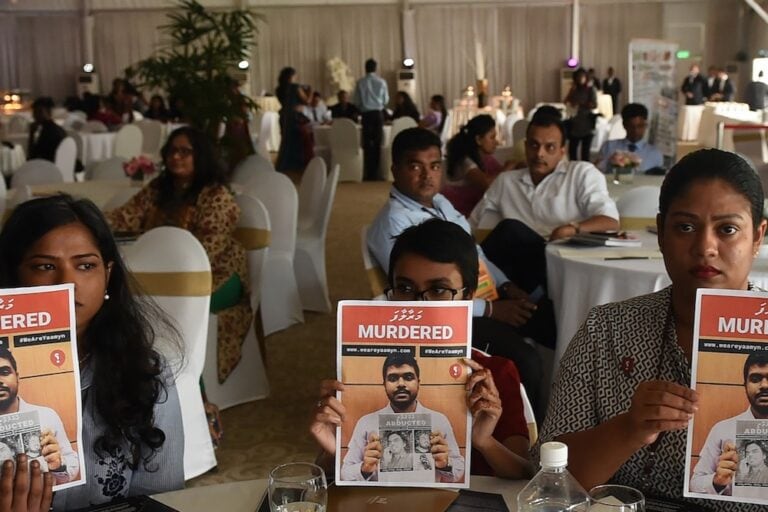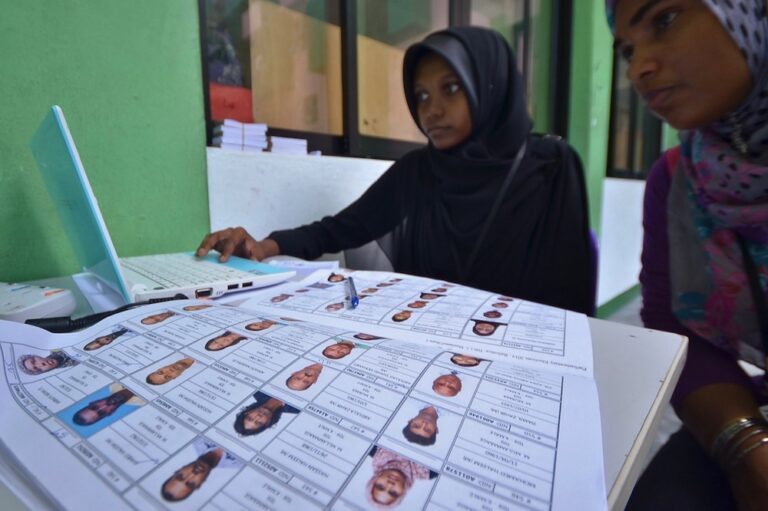(RSF/IFEX) – The conviction on 19 April 2006 of “Minivan” journalist Abdullah Saeed and his sentence to life imprisonment was engineered by the authorities in order to harm the country’s only opposition newspaper, Reporters Without Borders has said, calling for his retrial by an impartial court and urging President Gayoom to keep his promise to […]
(RSF/IFEX) – The conviction on 19 April 2006 of “Minivan” journalist Abdullah Saeed and his sentence to life imprisonment was engineered by the authorities in order to harm the country’s only opposition newspaper, Reporters Without Borders has said, calling for his retrial by an impartial court and urging President Gayoom to keep his promise to allow more press freedom.
Saeed’s colleagues also maintained that his conviction on charges of drug possession and trafficking had been orchestrated in order to silence a critical journalist.
The presiding judge, who insisted on not being named, violated Saeed’s right of defence, observers said. Saeed was not allowed to testify under oath in court, where he had intended to deny that he was in possession of drugs at the time of his arrest. The police said they found drugs in his clothes when he went to a police station in response to a summons. The judge also rejected defence requests for other witnesses to take the stand. The only witnesses in court were the police officers who claimed to have found the drugs.
Saeed’s lawyer nonetheless showed that the charges were trumped up. The police found nothing in Saeed’s possession during an initial search. The drugs were only “found” by a policeman during a search of his clothes a few minutes later after he had undressed and when his back was turned. His lawyer was not present for the search.
Aged 42, Saeed, also known as Fahala, had been held in Maafushi prison, south of the capital, since 27 March for refusing to submit to a urine test.
“Minivan” subeditor Nazim Sattar was meanwhile charged yesterday before the Male criminal court with “disobedience to order” over an allegedly “illicit” article published in August 2005. He faces six months of banishment, imprisonment or house arrest.
In addition, a reporter working for the newspaper “Manaf” was questioned by police at his office, without prior notification and without being told the reason for the interrogation.
Other “Minivan” journalists have been targeted this month. Mohamed Yushau, the newspaper’s correspondent in the south of the country, was arrested on 9 April for allegedly refusing to respond to a police summons and was put in Dhoonidhoo prison near Male. Musa Ismael, its correspondent on Faafu atoll, has been harassed by the authorities and fears he could be arrested. “Minivan” photojournalist Jennifer Latheef is meanwhile under house arrest after being sentenced to 10 years in prison for “terrorist” activities.


